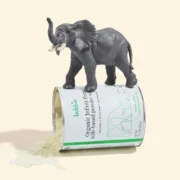Studies show, time and again, that men and women run their businesses differently; the same applies to male and female founders when it comes to raising funds. Some of these differences are due to the roadblocks women founders face while fundraising. For instance, women may have to bootstrap longer and raise funds from friends and families more often since statistics reveal that VCs tend to invest more in male-led startups.
Some of the other differences, could we perhaps chalk it down to the Venus vs Mars theory? Here’s a Valley IR take featuring two indoor plant startups.
On 30th September 2020, Bloomscape CEO, Justin Mast, announced that they raised $15M in Series B funds. A year later, on Oct 27, 2021, Eliza Blank – founder of The Sill – sat down with Forbes to discuss how she grew her multi-million plant delivery startup. And while both of these companies do the same thing, their paths couldn’t be more different. Both of these two entrepreneurs had a common goal, a common demographic, the same product – yet they undertook two very distinct trajectories.
Detroit’s Justin Mast approached his garden startup – Bloomscape by focusing on the supply chain of the business. What this meant was that Mast and Co. were deeply invested in the biology of the plants as well as the intricacies of the supply chain. “We know the plants really well, we know how they perform, how they move through a supply chain, we know the nuances of FedEx and UPS, we know what growers are growing quality products,” says Mast.
Justin was born to a family of horticulturists and raised in Detroit, which is where he continues to operate from. Mast often worked in the family greenhouse as a child and even started a roadside plant stand; his version “of the lemonade stall”.
This intimate understanding of the nuances of the plant business is what allowed Bloomscape to bring in a total of $24 million from their Series B funding; notably led by General Catalysts with contributions from Bob Mylod (Annox Capital), Jeff Boyd (Home Depot), Revolution Ventures and others.
Joel Cutler, co-founder and managing director of General Catalyst says:
“You’d be hard pressed to find a team that understands a consumer vertical better than Bloomscape does with home gardening.”
However, The Sill co-founder, Eliza Blank took quite a contrasting route to fundraising.
Eliza Blank was 26 years old when she started toying with the idea of her DTC houseplant company, dubbed The Sill. It started with the idea of providing millennials, like herself, with the right quality of houseplants. Blank chose the bootstrapping route to raise funds for her humble business – $10,000 from her savings and $10,000 more from her co-founder, Gwen Blevens. As Blank puts it, “[the fact that The Sill had a co-founder] was my first point of validation.”
What Blank was after wasn’t just funds for her business – it was Product-Market Fit. She wanted to see if her idea of selling house plants was sustainable enough to become a business.
All of this was happening at a time when crowdsourcing was trending. Strangers could now be part of interesting business ideas by donating however much they could. So like many entrepreneurs in 2012, Blank launched a Kickstarter campaign. The goal, on the surface, was to raise a modest $12,000.
Blank went all-in with the campaign and included various gifts in the campaign, from hand-written notes to artisan-made planters. The Sill easily reached their goal. But it was never just about the funds. The Kickstarter campaign actually helped her strategically determine her Product-Market Fit. “You’re pre-selling the idea, you’re pre-selling the product,” she said.
On being asked why Eliza didn’t opt for the traditional venture capital route, she explains:
“When you’re subsidized by venture capital, it’s easy to cover up lack of product-market fit with marketing and advertising.”
Their stories shine some light on the differences between how many men and women approach fundraising. There’s no wrong way to go about it, as long as they yield results. Because in the end, it’s the bottomline that matters. It’s not about the differences between men and women startup founders, but how they will cope with fundraising challenges going forward. The startup ecosystem, especially with all the recession, and the inherent biases women founders face when it comes to the startup ecosystem, has made fundraising incredibly difficult and exhausting. However, whatever happens the news is that the situation is going to be impossible to change or challenge.













